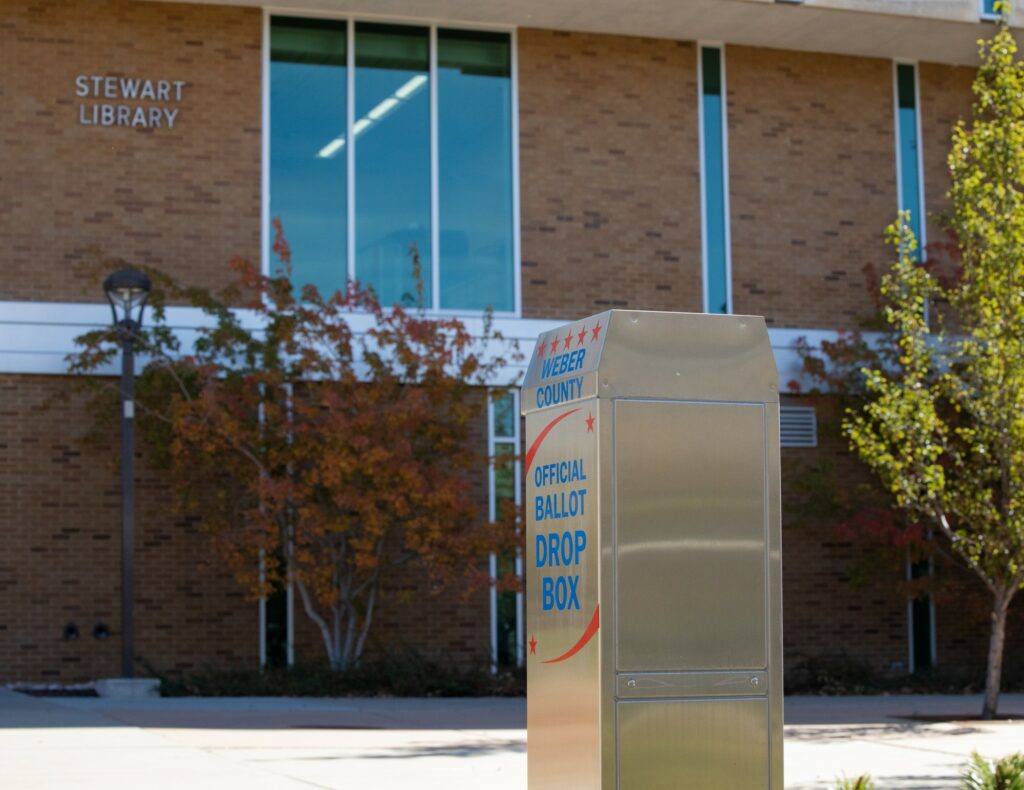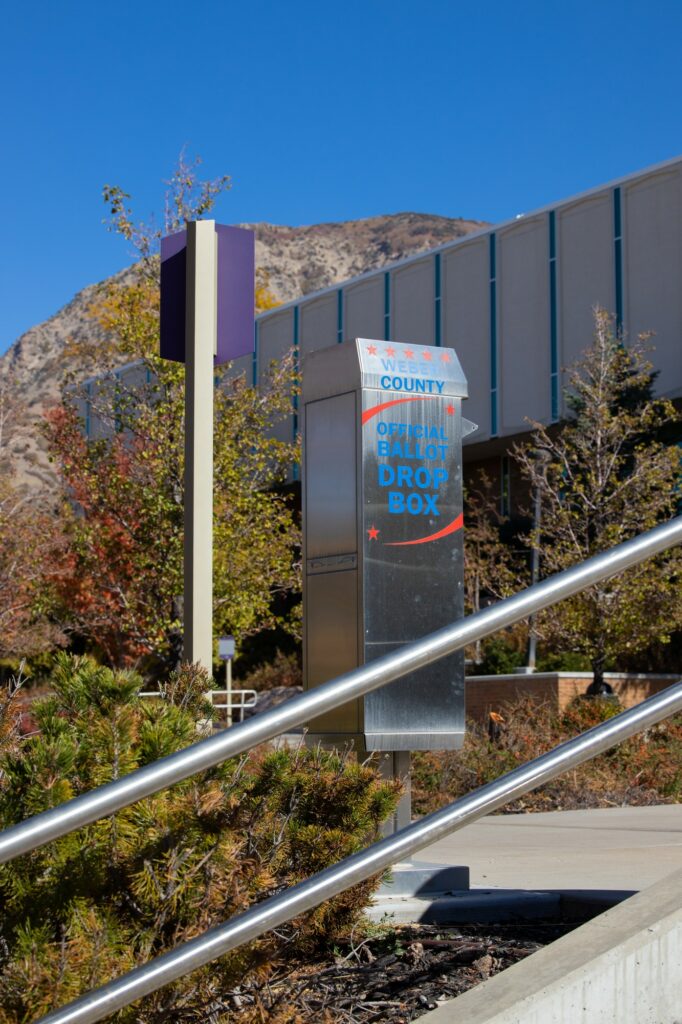Weber State University has been designated as a Voter Friendly Campus, a title offered by a program started through the partnership of two organizations, the Campus Vote Project and the National Association of Student Personnel Administrators, in 2016.

The Voter Friendly Campus program aims to help college administrations develop strategies to increase political engagement and voting rates among students, an age group known to have low voter turnout. It’s not just the Generation Z students currently coming of age or the millennials before them who don’t turn out in the same numbers as older voters.
“The younger people are, the less likely they are to vote,” said Leah Murray, academic director for the Walker Institute of Politics and Public Service at WSU. “That’s just a general rule of every generation,” and true of young baby boomers in the past.
One reason young people vote less is because traditional motivations to vote aren’t yet present. According to Murray, voting can be driven by financial interests, and most people do not begin to accumulate wealth until later in life.
People are also more likely to vote after settling down in a community, Murray said. Young people tend to stay mobile, especially students who frequently move between apartments and student housing.
Barriers also arise out of the voting system itself. Because of more frequent moving, some college students may not have a permanent address, which is necessary in order to register to vote.
These factors and more lead the age group of 18 to 24 to have the lowest voter turnout rate.
“It is harder for students to register to vote, to stay on the voter roll and then actually be able to go vote,” Murray said.
In the past, Utah has had more accessible voting than many other states, becoming a vote-by-mail state in 2013. According to Newsweek, Utah, Colorado, Hawaii, Oregon and Washington were the only states before the pandemic to use a vote-by-mail system.
This benefits students in Utah who can receive a ballot in the mail at their current address and not have to find voting locations in a place they have lived for only a short time.

A ballot box was installed in front of Stewart Library, in the process eliminating another inconvenience: the need for postage stamps that students may not have.
“We had 731 ballots come in that ballot box in the 2020 election,” Murray said. “That’s a lot of students who didn’t have to go find a stamp.”
WSU uses TurboVote, an online voter registration website and app. That way, students can be provided with links that will take them to the registration process, bypassing the steps of filling out paper forms that need to be mailed in.
Using TurboVote, WSU students with permanent addresses out-of-state were able to receive absentee ballots in Utah. “No matter where you are registered, we can help you figure this out,” Murray said.
Even if there are no obstacles to turning in a vote, there is another dimension to the process: keeping students involved and informed. Throughout the year, the Walker Institute offers programs aimed at voter education for students, but the October of an election cycle is particularly focused on the current issues surrounding an upcoming election.
Virtual programming was offered in the fall of 2020, including an explanation of the ballot, virtual debate screenings and discussion of main issues.
“We never tell students how to vote, but we try to give them all the information they need to make a good decision for themselves,” Murray said.
WSU’s current designation of Voter Friendly Campus will be valid March 2021 to December 2022.



















